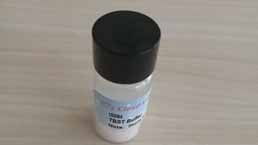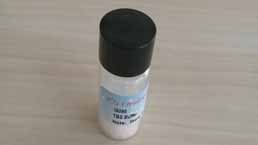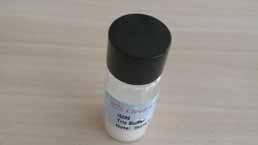Monoclonal Antibody to Apolipoprotein B100 (APOB100)
Apo-B100
- Product No.MAA603Hu27
- Organism SpeciesHomo sapiens (Human) Same name, Different species.
- SourceMonoclonal antibody preparation
- HostMouse
- Potency (Clone Number)C2
- Ig Isotype IgG2b Kappa
- PurificationProtein A + Protein G affinity chromatography
- LabelNone
- Immunogen RPA603Hu01-Recombinant Apolipoprotein B100 (APOB100)
- Buffer Formulation0.01M PBS, pH7.4, containing 0.05% Proclin-300, 50% glycerol.
- TraitsLiquid
- Concentration1mg/mL
- Organism Species Moren/a
- ApplicationsIHC
If the antibody is used in flow cytometry, please check FCM antibodies. - DownloadInstruction Manual
- UOM 20µl100µl 200µl 1ml 10ml
- FOB
US$ 113
US$ 265
US$ 378
US$ 945
US$ 3780
For more details, please contact local distributors!
SPECIFITY
The antibody is a mouse monoclonal antibody raised against APOB100. It has been selected for its ability to recognize APOB100 in immunohistochemical staining and western blotting.
USAGE
Western blotting: 0.5-2µg/mL;
Immunohistochemistry: 5-20µg/mL;
Immunocytochemistry: 5-20µg/mL;
Optimal working dilutions must be determined by end user.
STORAGE
Store at 4°C for frequent use. Stored at -20°C in a manual defrost freezer for two year without detectable loss of activity. Avoid repeated freeze-thaw cycles.
STABILITY
The thermal stability is described by the loss rate. The loss rate was determined by accelerated thermal degradation test, that is, incubate the protein at 37°C for 48h, and no obvious degradation and precipitation were observed. The loss rate is less than 5% within the expiration date under appropriate storage condition.
GIVEAWAYS
INCREMENT SERVICES
| Magazine | Citations |
| PLoS One | Enhancement of Naringenin Bioavailability by Complexation with Hydroxypropoyl-β-Cyclodextrin Plosone: 0018033 |
| Autonomic Neuroscience | Chemical sympathectomy induces arterial accumulation of native and oxidized LDL in hypercholesterolemic rats ScienceDirect: S1566070211004152 |
| Toxicology | iTRAQ-based proteomic profiling of human serum reveals down-regulation of platelet basic protein and apolipoprotein B100 in patients with hematotoxicity induced by chronic occupational benzene exposure ScienceDirect: S0300483X11004628 |
| Atherosclerosis | Up-reCavia (Guinea pig )lation of Hnf1α gene expression in the liver of rats with experimentally induced chronic renal failure – A possible link between circulating PCSK9 and triacylglycerol concentrations Pubmed:26978583 |
| Proteomics Clinical Applications | Comparative mass spectrometric and immunoassay‐based proteome analysis in serum of Duchenne muscular dystrophy patients Pubmed:26680509 |
| molecular nutrition & food research | Alleviating VLDL overproduction is an important mechanism for Laminaria japonica polysaccharide to inhibit atherosclerosis in LDLr-/- mice with diet-induced insulin resistance. pubmed:27928899 |
| PROTEOMICS - Clinical Applications | Comparative mass spectrometric and immunoassay-based proteome analysis in serum ofDuchenne muscular dystrophy patients. pubmed:26680509 |
| Biosci Biotechnol Biochem. | Choline and betaine ameliorate liver lipid accumulation induced by vitamin B6 deficiency in rats. pubmed:27696964 |
| Journal of Nutritional Science and Vitaminology | Accumulation of Liver Lipids Induced by Vitamin B6 Deficiency Was Effectively Ameliorated by Choline and, to a Lesser Extent, Betaine Pubmed: 30814419 |
| ECOTOXICOLOGY AND ENVIRONMENTAL SAFETY | Zygophyllum album saponins prevent atherogenic effect induced by deltamethrin via attenuating arterial accumulation of native and oxidized LDL in rats Pubmed: 32105945 |
| Ecotoxicol Environ Saf | Permethrin induced arterial retention of native and oxidized LDL in rats by promoting inflammation, oxidative stress and affecting LDL receptors, and collagen … Pubmed: 32911180 |
| Nat Commun | GP73 is a TBC-domain Rab GTPase-activating protein contributing to the pathogenesis of non-alcoholic fatty liver disease without obesity 34853313 |
| Clinical Nutrition | Postprandial dyslipidemia after a standardized high-fat meal in BMI-matched healthy individuals, and in subjects with prediabetes or Type 2 diabetes 34656950 |
| Nano Research | Immunomodulatory hybrid bio-nanovesicle for self-promoted photodynamic therapy |














